
The 1983 United Kingdom general election was held on Thursday 9 June 1983. It gave the Conservative Party under the leadership of Margaret Thatcher the most decisive election victory since that of the Labour Party in 1945, with a majority of 144 seats and the first of two consecutive landslide victories.
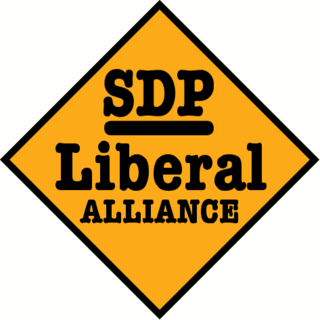
The SDP–Liberal Alliance was a centrist and social liberal political and electoral alliance in the United Kingdom.

The National Front (NF) is a far-right, fascist political party in the United Kingdom. It is currently led by Tony Martin. A minor party, it has never had its representatives elected to the British or European Parliaments, although it gained a small number of local councillors through defections and it has had a few of its representatives elected to community councils. Founded in 1967, it reached the height of its electoral support during the mid-1970s, when it was briefly England's fourth-largest party in terms of vote share.

The Cambodian People's Party (CPP) is a Cambodian political party which has ruled the country since 1979. Founded in 1951, it was originally known as the Kampuchean People's Revolutionary Party (KPRP).
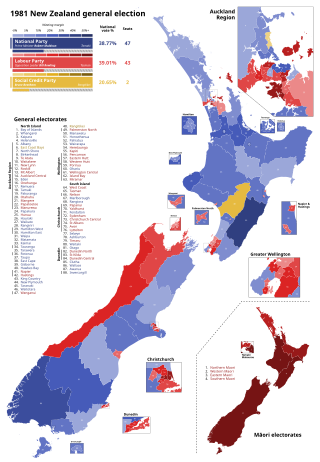
The 1981 New Zealand general election, held on 28 November 1981, was a nationwide vote to determine the shape of the 40th New Zealand Parliament. It saw the governing National Party, led by Robert Muldoon, win a third term in office, but the opposition Labour Party, led by Bill Rowling, won the largest share of the votes cast. Social Credit also won over 20% of the vote – their best result ever – but received no new seats.

Presidential elections were held in France on 26 April 1981, with a second round on 10 May. François Mitterrand defeated incumbent president, Valéry Giscard d'Estaing to become the first Socialist president of the Fifth Republic. It is the first presidential election in French history that an incumbent president actively seeking reelection was denied a second term.
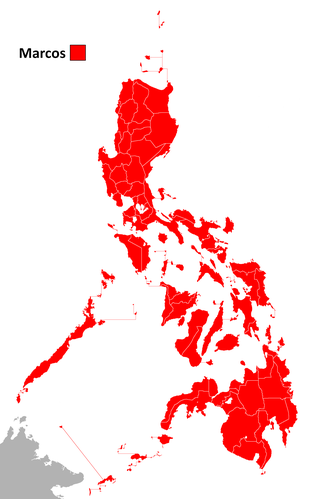
The 1981 Philippine presidential election and national referendum was held on June 16, 1981. President Ferdinand E. Marcos of the Kilusang Bagong Lipunan (KBL) defeated retired general and World War II veteran Alejo Santos of the Nacionalista Party in a landslide victory. Most opposition parties boycotted the election as a sign of protest over the 1978 election for the Interim Batasang Pambansa, which they condemned as fraudulent. At the same time, a national referendum was held on the question in holding elections for barangay elections in 1982.

The Parliament of Ghana is the legislative body of the Government of Ghana.
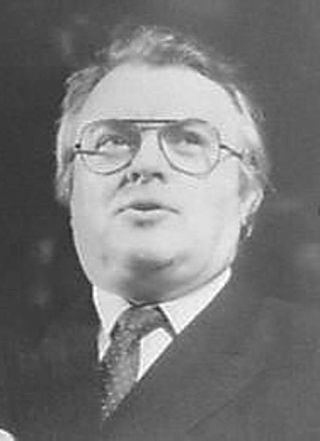
Legislative elections were held in France on 14 and 21 June 1981, to elect the seventh National Assembly of the Fifth Republic.
The Interim Batasang Pambansa was the legislature of the Republic of the Philippines from its inauguration on June 12, 1978, to June 5, 1984. It served as a transitional legislative body mandated by the 1973 Constitution as the Philippines shifted from a presidential to a semi-presidential form of government.
Members of the New South Wales Legislative Assembly who served in the 47th parliament held their seats from 1981 to 1984. They were elected at the 1981 state election, and at by-elections. The Speaker was Laurie Kelly.

Elections were held in the state of New South Wales, Australia, on Saturday 19 September 1981. The result was a second "Wranslide": a landslide victory for the Labor Party under Neville Wran. Labor increased its already sizeable majority, winning what is still its biggest-ever share of seats in the New South Wales Legislative Assembly–69 out of 99 seats, 69.7 percent of the chamber until 2011 when it was surpassed by Barry O'Farrell’s landslide 2011 election win when the Liberal—National Coalition won 74% of seats.

The 1984 European Parliament election was the first since the inaugural election of 1979 and the 1981 enlargement of the European Community to include Greece. It was also the last before the accession of Spain and Portugal in 1986.
Knesset elections were held in Israel on 30 June 1981. The ruling Likud won one more seat than the opposition Alignment, in line with many polls which had predicted a tight race. Voter turnout was 78.5%, with Likud receiving around ten thousand more than the Alignment. This elections highlighted the polarization in the country.

The Socialist Party is a centre-left to left-wing political party in France. It holds social democratic and pro-European views. The PS was for decades the largest party of the "French Left" and used to be one of the two major political parties in the French Fifth Republic, along with the Union for a Popular Movement. It replaced the earlier French Section of the Workers' International in 1969 and is currently led by First Secretary Olivier Faure. The PS is a member of the Party of European Socialists, Progressive Alliance and Socialist International.
The 1981 New South Wales state election involved 99 electoral districts returning one member each. The election was conducted on the basis of optional preferential voting system. There was a significant change from the 1978 election as a result of the passage of the Parliamentary Electorates and Elections (Amendment) Act 1979, and the Constitution (Amendment) Act 1979. The effect of these Acts was to end the electoral malapportionment requiring that the number of electors within each electoral district be within 10%. Under the previous zoning system, a seat in the "central area" had a quota of 34,067, but could be as high as 40,880 while a "country area" seat had a quota of 26,016 but could be as low as 20,813. The effect of the 1980 redistribution was to create 6 new seats in Sydney Newcastle and Wollongong and abolishing 6 country seats.
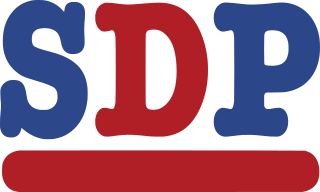
The Social Democratic Party (SDP) was a centrist to centre-left political party in the United Kingdom. The party supported a mixed economy, electoral reform, European integration and a decentralised state while rejecting the possibility of trade unions being overly influential within the industrial sphere. The SDP officially advocated social democracy, but its actual propensity is evaluated as close to social liberalism.
The 1978 New South Wales state election was the first direct election for the Legislative Council since the council was reconstituted in 1856 and the creation of the Legislative Assembly. This was the result of the 1978 referendum which also reduced the number of members from 60 to 43 and that provided that members would serve for 3 terms of the Legislative Assembly. Under the transitional arrangements, 28 members had been indirectly elected by joint sittings of the New South Wales Parliament.












